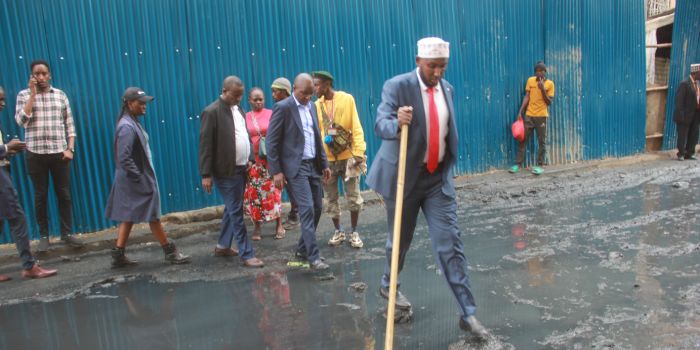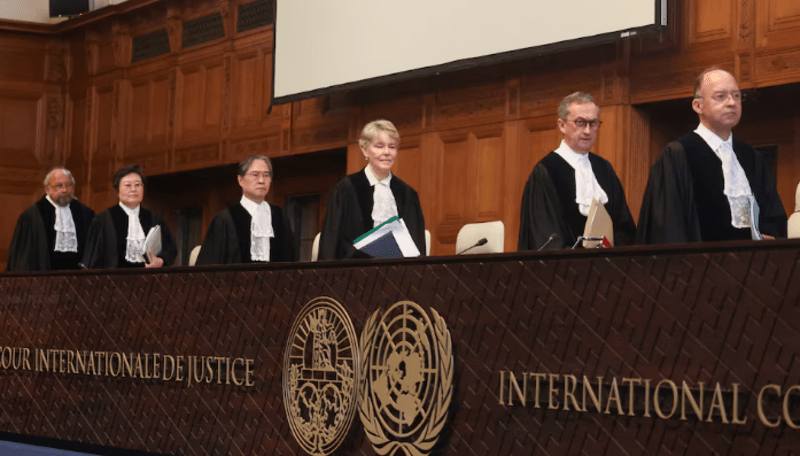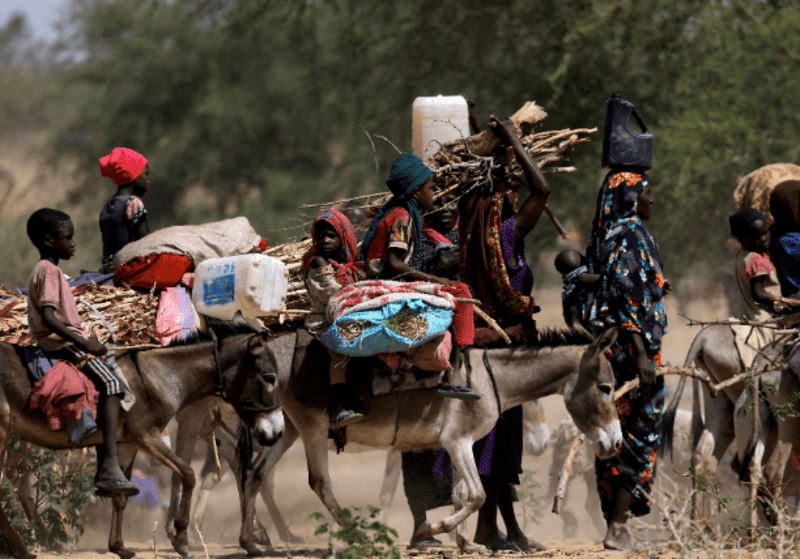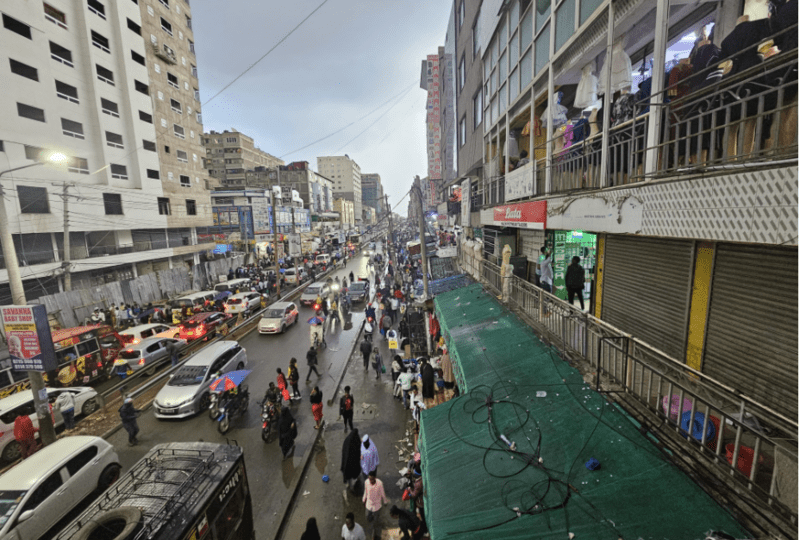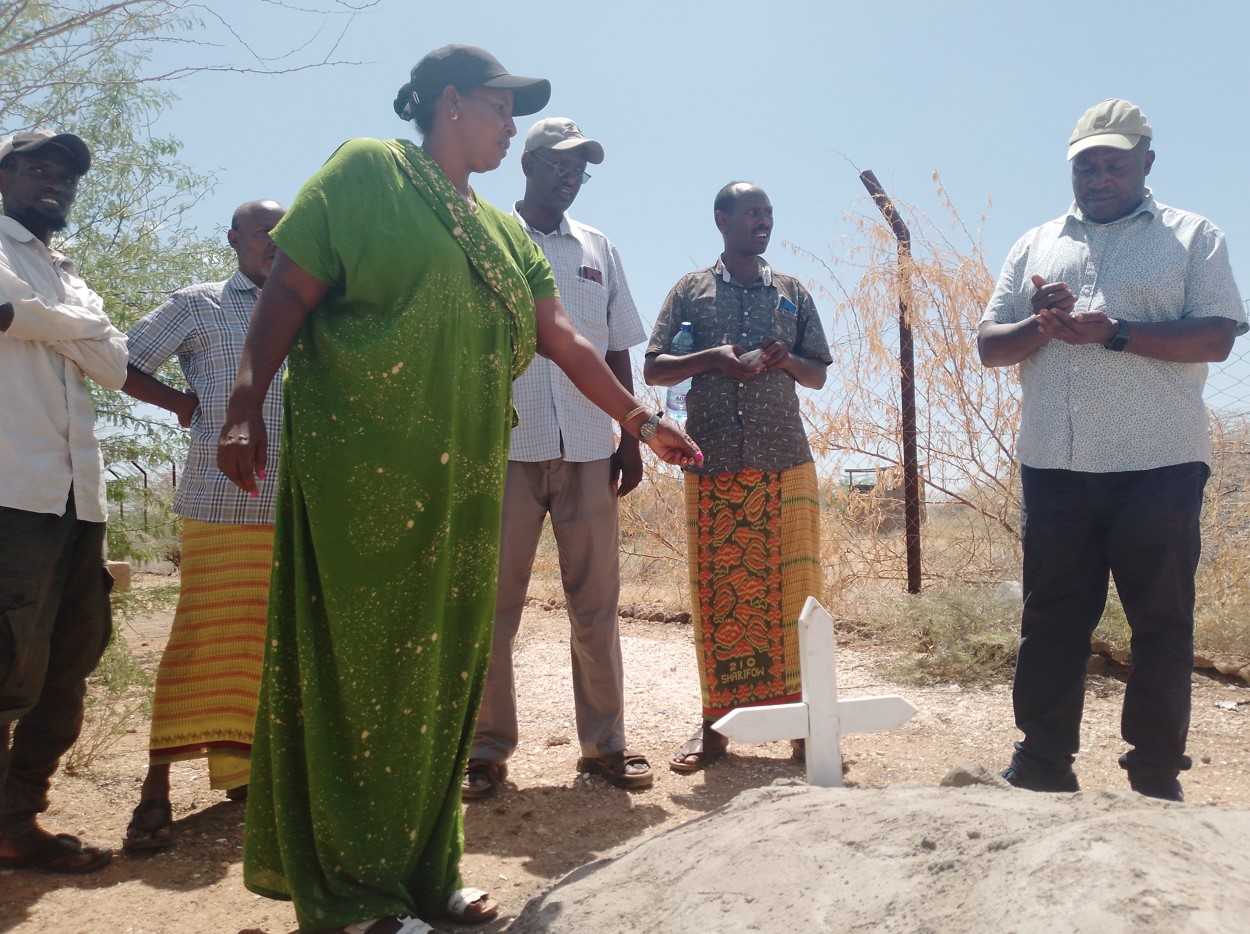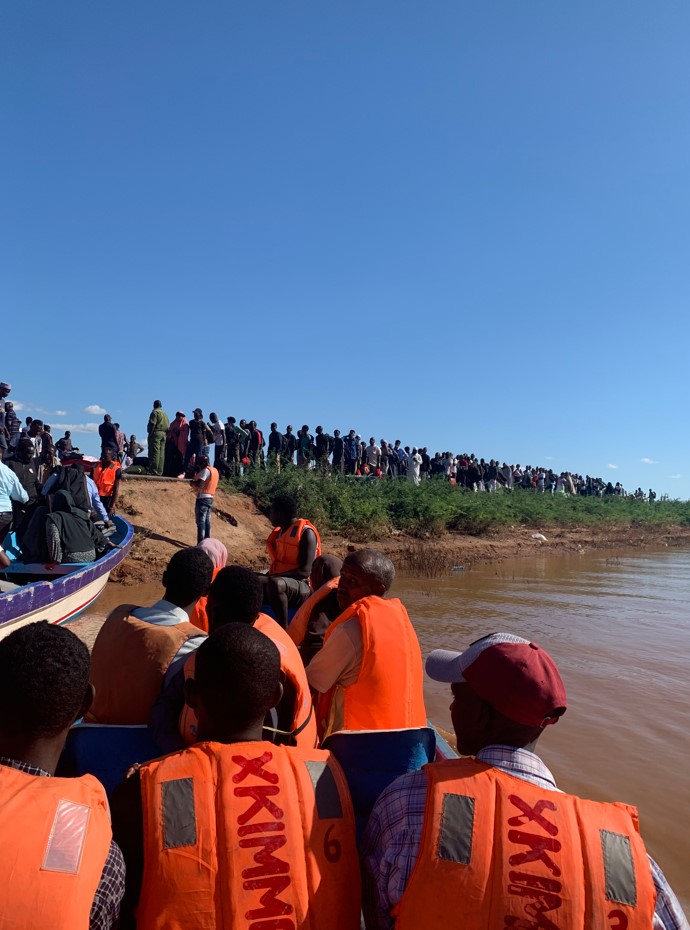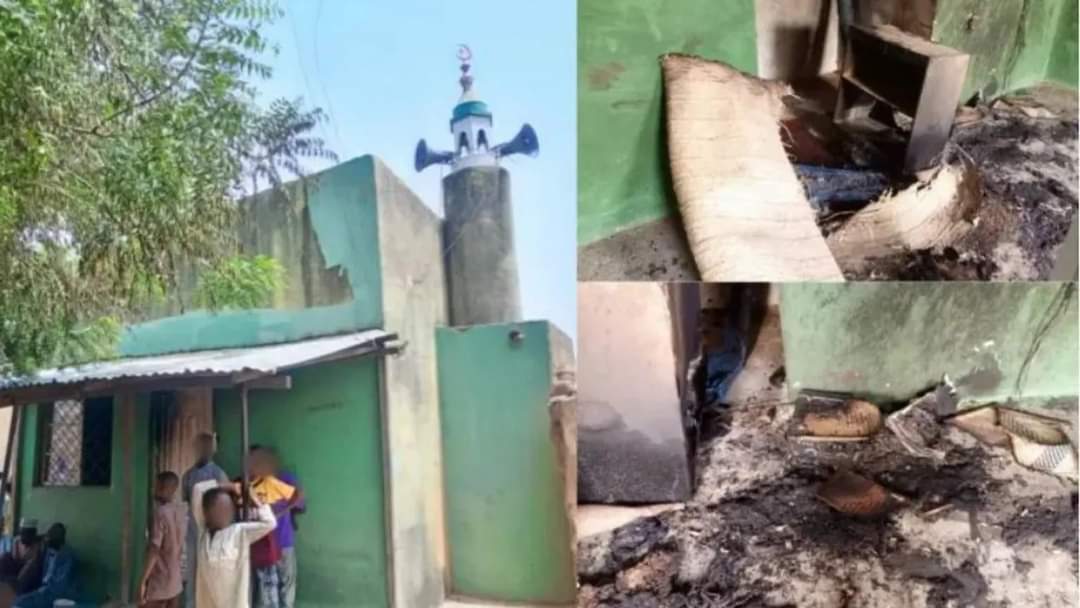Floods havoc: Kinyago residents struggle to rebuild shattered homes
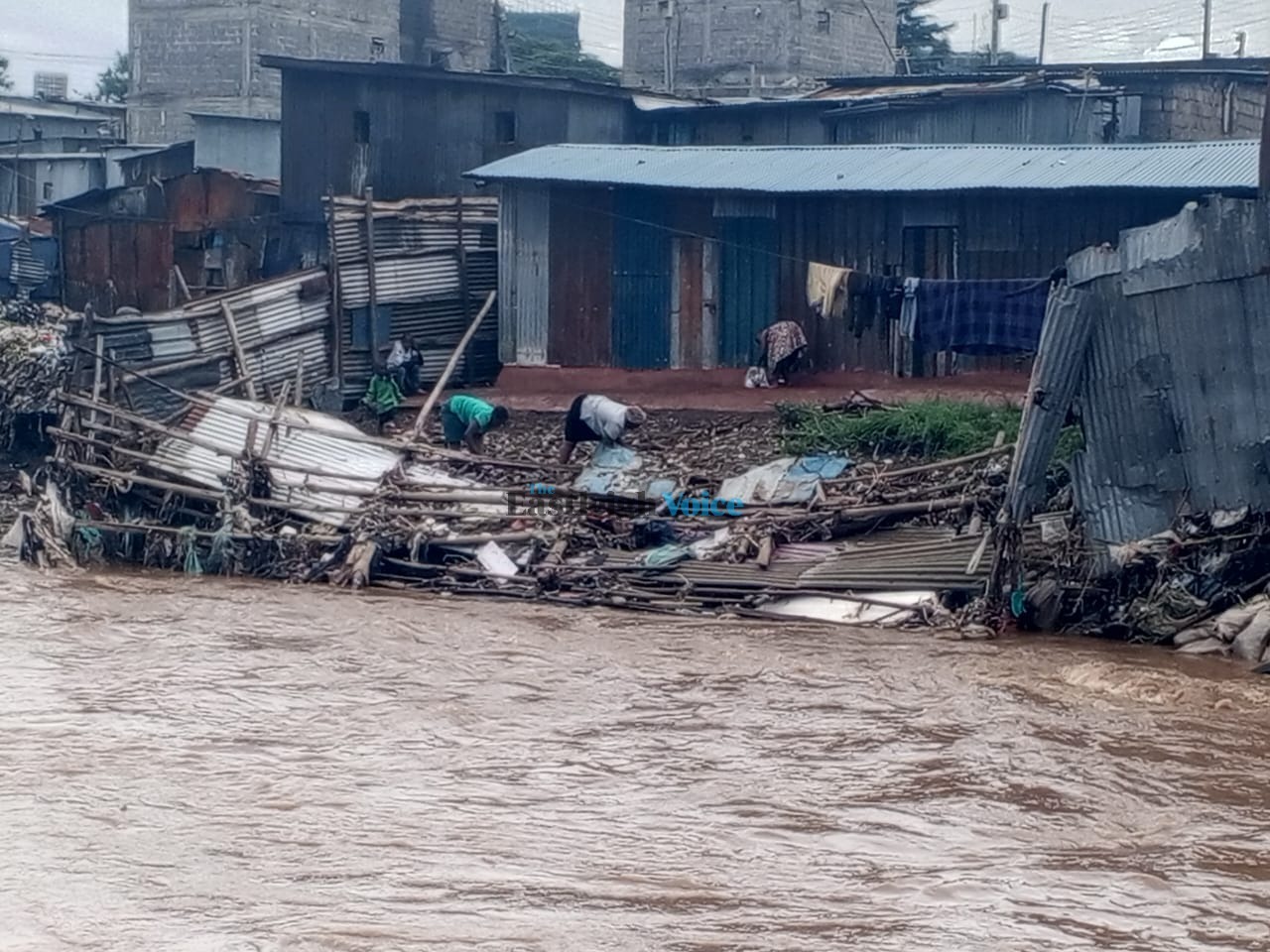
By Charity Kilei |
In Kinyago village, situated in Kamukunji Constituency, victims are seen salvaging old iron sheets and nails, while others reconstruct their houses, which they cherish as their only sanctuary amidst adversity. For these residents, rebuilding isn't merely a choice, it's a necessity for survival.
Tragically, those living on riparian lands have borne the brunt of recurrent flash floods. Despite the devastation, while some have sought refuge elsewhere, many remain steadfast, attempting to reclaim what little remains of their shattered homes.
Keep reading
The recent floods that swept through Kinyago in Kamukunji marked the fourth calamity since the onset of the rainy season in March.
Merceline Moraa, a resident grappling with the aftermath, revealed her family's repeated loss in a span of two months.
"My family has been stripped of everything, and while I yearn to relocate, the stark reality is that staying put is the only feasible option for now," says a mother of four.
 Polycarp Ashiolo, another resident near the river in Kinyago, who was affected by floods. (Photo: Charity Kilei)
Polycarp Ashiolo, another resident near the river in Kinyago, who was affected by floods. (Photo: Charity Kilei)Earning a meagre daily wage of Sh200, Moraa has limited options due to financial constraints.
"Landlords inflate rents and deposits, leaving us with no options but to salvage what remains of our homes, clinging to the hope that the rains will relent," she added.
Polycarp Ashiolo, another resident near the river in Kinyago, expressed his anguish over the devastating loss he experienced.
"Everything was swept away - the books, uniforms, beddings. The floods swept through the homes at midnight, compelling us to evacuate to prevent loss of life. Unfortunately, all our belongings were washed away," Polycarp said.
"I'll just clean up the house and start afresh because there's nowhere else to go. The government hasn't indicated a specific relocation site, so we'll stay and rebuild because it's all we can do now," he added.
Polycarp noted that residing in risky areas is not a choice made willingly but is often dictated by financial constraints.
"People here rebuild because it's what they can afford. We hope for assistance from well-wishers," he said.
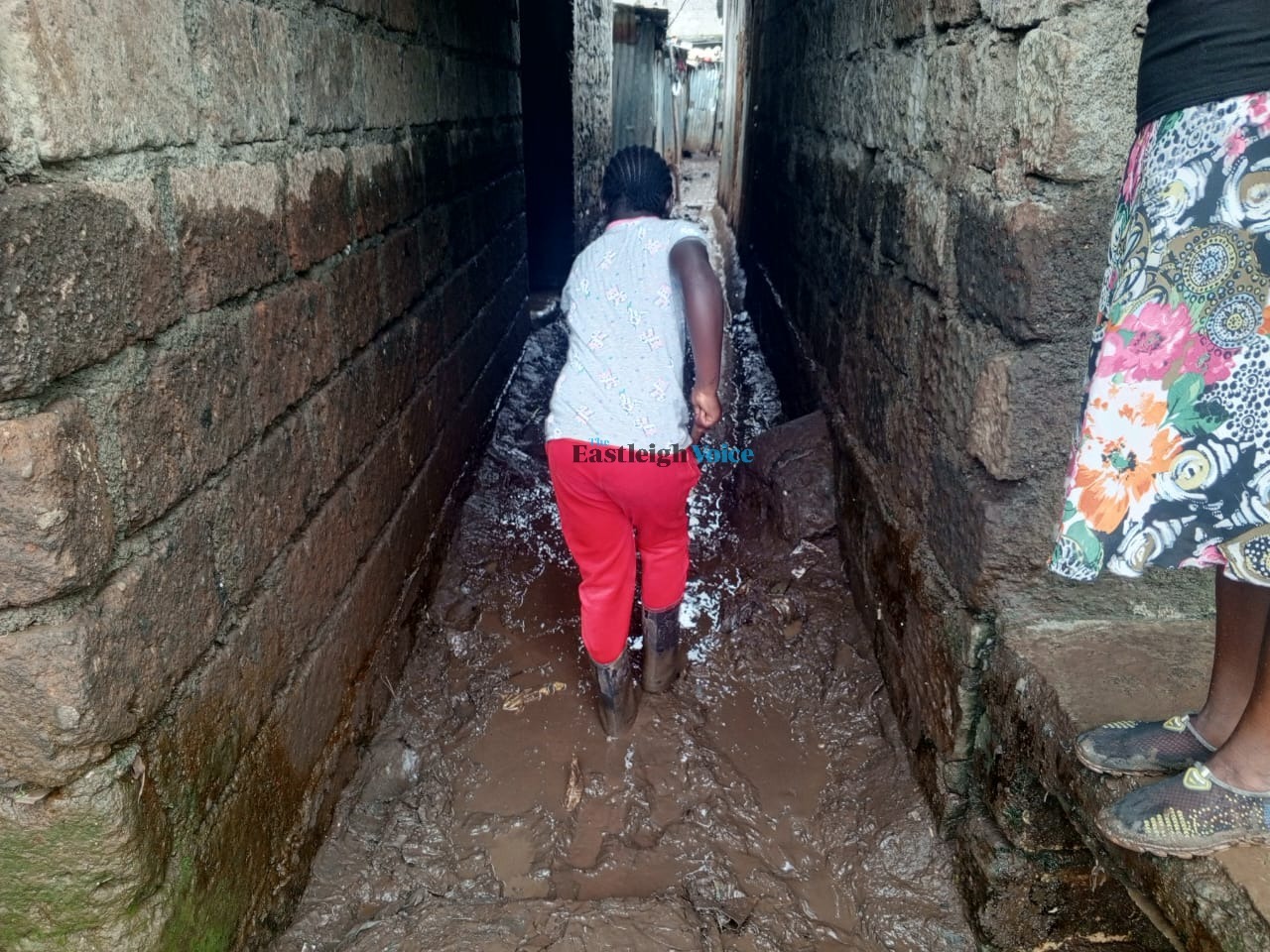 Fatuma Mohamed clearing debris in her house. (Photo: Charity Kilei)
Fatuma Mohamed clearing debris in her house. (Photo: Charity Kilei)Fatuma Mohamed, another resident and a mother of seven, is engaged in clearing debris in her house.
"This is the fourth time we've faced such problems, and each time, we've been left with nothing. I can't afford to relocate to a safer place with my children; this is all I can manage," she says.
Despite the threats posed by floods, Fatuma has no intentions of leaving her home. "The government can ask us to move, but without assistance, how can we? We stay here because it's all we can afford. If a solution is provided, we'll move without hesitation."
On Tuesday, President William Ruto instructed residents living on riparian land to evacuate within 48 hours starting Wednesday.
Speaking in Mai Mahiu, Nakuru County, where he was consoling those affected by mudslides, Ruto pledged government assistance in the relocation process, stressing the provision of temporary shelter for those in need.
"We urge residents in high-risk areas of mudslides and floods to relocate, with our support aimed at saving lives," said Ruto.
He highlighted the urgency of the relocation to avert possible deaths.
While voluntary evacuation is encouraged, the government will forcibly relocate those who remain in high-risk areas for their safety.
The exercise will be done in collaboration with National Government Administration Officers, county governments, and humanitarian organisations to ensure a prompt and compassionate process.




